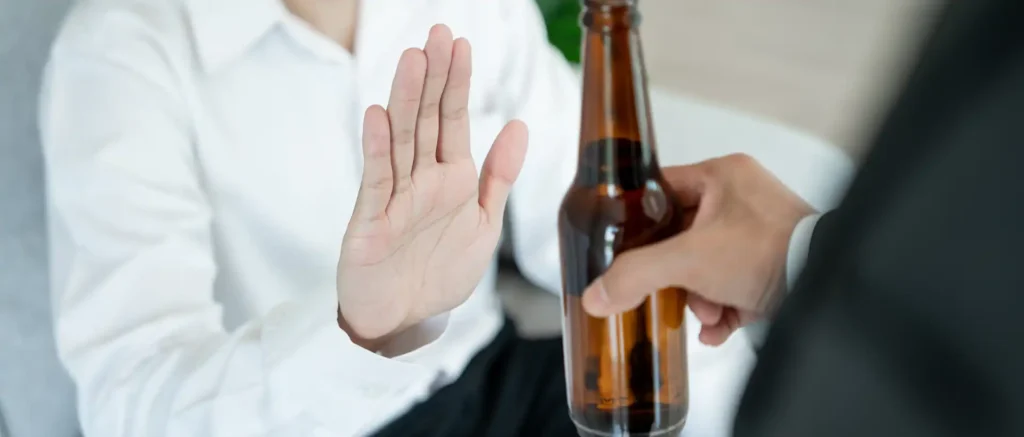How to Quit Drinking Alcohol | Treatments for Alcohol Use Disorder
Quitting alcohol can be a major life change, but with the right steps and support, it is achievable. Whether you aim to stop drinking completely or simply reduce your intake, developing a clear plan will help you succeed. This guide outlines practical strategies to support you in becoming alcohol-free.
Understanding Alcohol Use
Alcohol affects people differently, and it can be difficult to recognise when social or casual drinking turns into a health risk. Understanding your reasons for drinking and the amount you consume can help you identify unhealthy patterns early and take control.
Recognising Signs of Alcohol Dependence
Alcohol dependence can develop gradually. Common indicators include difficulty stopping after one or two drinks, drinking alone or in secret, and needing alcohol to relax or cope with stress.
You may also notice physical signs such as sweating, trembling hands, or nausea when reducing alcohol intake. Emotional symptoms, including anxiety or irritability, may accompany physical withdrawal. If these patterns sound familiar, you may be dependent on alcohol and could benefit from professional support.
Assessing Your Relationship With Alcohol
Take time to evaluate your drinking habits. Ask yourself if you drink more than you used to, whether it affects your work or relationships, or if you drink to manage stress or emotions.
Keeping a simple drink diary for a week or two can help identify triggers, such as certain moods or social situations. Identifying your motivations and patterns is a key step in deciding how to quit drinking alcohol effectively.

Preparing to Stop Drinking Alcohol
Success begins with self-reflection, planning, and support. Define your goals, recognise your triggers, and identify supportive individuals or groups to help you stay committed.
Setting Clear Reasons and Goals
Start by identifying why you want to stop drinking. These reasons might include improving physical health, enhancing mental wellbeing, sleeping better, or saving money.
Write them down and keep them visible. Decide whether you want to stop drinking altogether or cut back. Setting measurable goals, like being alcohol-free for 30 days or only drinking on weekends, can help you stay focused.
Identifying Triggers and High-Risk Situations
Triggers are situations or emotions that make you want to drink. Keep track of when and where you typically drink. Is it after work? During social events? Once identified, plan how to avoid or manage these moments.
Strategies could include bringing non-alcoholic drinks to gatherings or opting for alternative activities. This preparation strengthens your ability to resist temptation without relying solely on willpower.
Getting Help From a Support Network
Support is vital when quitting alcohol. Inform family or friends you trust, and ask for their encouragement. Join support groups, such as Alcoholics Anonymous or SMART Recovery, to share experiences with others who understand.
Some patients benefit from counselling or working with a health professional to navigate cravings and triggers. A reliable support system boosts your chances of long-term success.
How to Quit Drinking Alcohol
Having a structured approach can make quitting more manageable. Consider your method of stopping, how to handle cravings, and what daily habits will support your decision.
Gradual Reduction Versus Going Cold Turkey
Your method should reflect your drinking habits. Gradually cutting back might mean reducing your intake by a set number of drinks each week, which can lessen alcohol withdrawal symptoms.
Cold turkey, or stopping all at once, may be effective for those unable to moderate, but it can lead to severe withdrawal and should be done under medical supervision if you’ve been drinking heavily. Consult your doctor or another health professional before making a decision.
Coping Techniques for Cravings
Cravings are a natural part of quitting drinking. Distractions such as walking, exercising, or calling a friend can help. Breathing exercises and mindfulness techniques can reduce stress and improve self-control.
Some people write down their motivations to quit and refer to them when cravings arise. Preparing for high-risk situations can make you more resilient.
Healthy Lifestyle Changes
Creating a healthy daily routine can ease the transition to an alcohol-free life. Stay hydrated, eat balanced meals, and prioritise sleep. Regular physical activity, such as cycling, swimming, or walking, improves your mood and reduces stress.
Moreover, replacing drinking with enjoyable hobbies can also provide emotional fulfilment. These lifestyle shifts support the benefits of cutting back on or stopping alcohol use.

Aftercare for Alcohol Withdrawal Symptoms
Maintaining sobriety involves long-term planning, habits, and support. Identifying risks, managing emotions, and staying connected to others can help prevent relapse.
Managing Relapse Risks
Relapse can occur even after a strong start. Identifying your triggers (like stress, loneliness, or certain social settings) allows you to plan responses. Keep a structured routine to reduce downtime.
Replace drinking with meaningful activities, such as volunteering or creative pursuits. Celebrating milestones and recognising progress helps reinforce positive change.
Finding Ongoing Alcohol Support Groups
Support groups to help maintain sobriety can be transformative. Connecting with others who have lived experience fosters resilience and encouragement. Residential rehabilitation or outpatient programmes offer long-term structure, especially for people with severe alcohol use disorder.
Whether you join a group, speak regularly with a friend, or seek professional counselling, sustained connection helps you remain accountable and strong in your recovery.
When You’re Ready, PROMIS Is Here to Help
Overcoming alcohol addiction often calls for structured, professional support. At PROMIS, people dealing with alcohol-related health issues, including alcohol abuse and alcoholism, can access comprehensive care that respects the complexity of recovery. Whether you’re struggling with drinking too much or coping with withdrawal symptoms like anxiety or tremors, PROMIS provides a medically informed and compassionate environment.
For people who want to stop but may be worried about their drinking, having a team that understands both the psychological and physical dimensions of addiction makes a difference. PROMIS tailors each treatment service to the person, helping address not just drinking, but also co-occurring mental health conditions that may complicate the path to sobriety.
Frequently Asked Questions
What are the first steps to take when giving up alcohol?
Start by tracking your drinking habits and being honest about your intake. Set a specific goal and share it with someone you trust.
Can you recommend any effective strategies for maintaining sobriety?
Avoid high-risk environments, keep non-alcoholic options on hand, and build a supportive network. Engage in new hobbies and celebrate your progress.
What resources are available for those struggling with alcohol dependency?
Speak with your GP, reach out to local alcohol services, or contact national helplines. Many organisations offer online and in-person support.
What role does professional counselling play in alcohol cessation?
Counselling provides structure, coping strategies, and emotional support. A trained professional can help you better understand your triggers and develop new behaviours.
How long does it typically take to break the habit of drinking alcohol?
Physical improvements may be noticeable within days or weeks. Long-term behavioural change and confidence in sobriety often take several months, depending on the individual.
